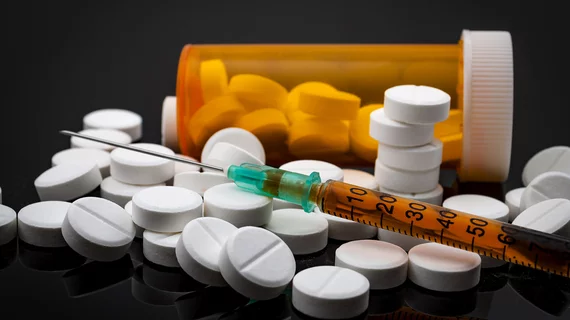Radiologists can play a crucial role in fighting the opioid epidemic
The opioid epidemic has impacted large areas of healthcare—and radiology is no exception.
In a recent interview with the American College of Radiology Bulletin, Efren J. Flores, MD, a radiologist at Massachusetts General Hospital in Boston, discussed the challenges and opportunities radiologists face when patients with apparent substance use disorders enter the emergency department.
In the interview, Flores advocated for radiologists to collaborate in creating responsive patient care models to support those with opioid addictions—a typically underserved population.
Additionally, he argued that education is essential going forward. Instilling proper prescription practices and identifying symptoms of opioid misuse are two steps the field needs to take. Alerting patients about needle exchange programs and safe injection sites should also be common practice among radiologists.
“Radiologists are in a unique position to see beneath the surface and alert the healthcare team, which is often the first step in the patient’s recovery. We have an opportunity to look beyond the reading room and help patients with their illness,” Flores said.
Read the full interview below.

